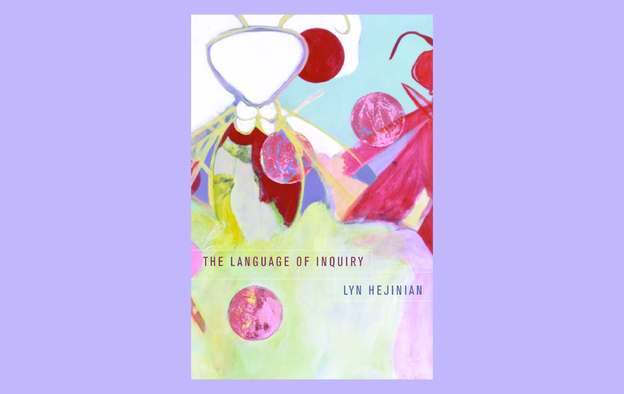Amiable love-arrows

In the fall of 2013, I drove my newborn son from San Francisco to Berkeley to meet Lyn. He was barely sleeping and still learning to nurse. The world seemed newly immense, to be navigated, through considerable haze, on behalf of this other, and he had been crying for what felt like a long time when we showed up on Lyn’s front porch and she welcomed us in. I sat on her couch; he fell asleep on my chest; she fed me; we talked. She put me in touch with her granddaughters’ nanny, whom I hired for one or two mornings a week, so that I could write. Two years later, after I’d moved to Portland but was returning for a visit, Lyn suggested, “We can go to Cafe Roma with paper and markers and toy trucks (I have all of these). You and I can play with them while [your son] reads Shakespeare.” We ended up sitting on the ground in her backyard, my son digging in the dirt. Lyn could tell that he needed to move, and she had garden tools, too.
Lyn was brilliant, funny, kind, wise, and the most generous teacher and thinker I have ever known. She saw me through nearly two decades of adulthood — from my first year in graduate school on through teaching, writing, marrying, divorcing, working, and mothering— with love, acceptance, and consistently sound advice about how to shape a life from what she called “recalcitrant and also lovely materials.” It is staggering to think about how many of her former students feel similarly. She cared for us so well, even as she nurtured her own remarkable creative and intellectual work.
Her approach to others followed the same principles that animated her poetry: openness, attention, and a commitment to rigorous and ethical thinking. “When two people are brought together questions as to the nature and substance of reality always arise,” reads a sentence from The Beginner. So much depends upon relationships — between people, things, and times; between language and whatever we desire to understand or describe. In “The Rejection of Closure,” Lyn writes that “over here is word, over there is thing, at which the word is shooting amiable love-arrows.”
In workshops and working groups, Lyn showed us the value of collaboration, contingency, and play, in part by orchestrating creations none of us could have made on our own. We made poems through interruption and accumulation, splitting apart one another’s couplets, wedging in new lines to form tercets, and continuing on. We passed papers around the table to write collective essays on combs, regret, and poetics. Language, thinking, experience, and sociality, we learned, could all extend one another. When I have felt at risk, in the years since, of losing something like “my voice,” the practices and values that Lyn modeled have been what helps: not some fantasy of unitary control emerging from solitude, but the pleasures of conversing, composing, and perceiving in relation to the world, with trusted others.
Lyn wrote to me in the fall that “for some reason I haven’t been afraid of death for a long time,” though she hoped to get more writing done, but also that “it’s great to be alive just for the sake of being alive.” It is hard for me to believe that she isn’t. Lately I have been rereading Mrs. Dalloway with two friends, one of whom was my student when I GSI-ed for Lyn’s English 45C survey at Berkeley. I still have Lyn’s lecture notes. They describe the contrast between clock time, “which is inexorable, ultimately leading to death,” and Clarissa Dalloway’s sense of unending, “radiating time.” Lyn summarizes Clarissa’s “vision, or the vision that she tells Peter about in a bus and that he remembers as he is walking around town — that once people have lived, their influence, their trace will continue to vibrate.” I know that Lyn’s trace will continue to vibrate.
Edited byMargaret Ronda Jennifer Scappettone Mia You Julie Carr